 article
articleAUSTIN, Texas – It took just two votes Tuesday afternoon to determine the next Speaker of the Texas House of Representatives.
Rep. Dustin Burrows (R-Lubbock) was elected speaker after an 85-55 vote over Rep. David Cook (R-Mansfield). Nine members did not vote in the final round of voting.
Burrows’ vote came from 46 Democrats and 39 Republicans.
Lawmakers returned to Austin on Tuesday to begin the 89th Texas Legislature.
What we know:
Burrows had support from both sides of the aisle in his win. The current Texas House is made up of 88 Republicans and 62 Democrats.
During nominations, Burrows was nominated by Rep. Charlie Geren (R-Fort Worth) and seconded by Democrats Mihaela Plesa and Toni Rose and Republican Lacey Hull.
Cook was nominated by Rep. Trent Ashby and received endorsements from Republicans Ellen Troxclair and James Frank and Democrat Richard Raymond who said he had flipped his endorsement from Burrows to Cook.
Rep. Ana-Maria Rodriguez Ramos finished third in the initial round of voting and did not make the run off.
What they’re saying:
Burrows spoke about inclusivity while addressing the House Teusday afternoon.
“Every member. Every member will have a voice,” Burrows said. “Every district. Every district will have a seat at the table.”
Burrows also thanked the members of the house for trusting him and emphasized that the House didn’t work for themselves or each other, but rather the people.
“I believe in this house,” Burrows said. “Most importantly, I believe in each and every one of you. Today, we begin the people’s work.”
Attorney General Ken Paxton released a statement on Burrows’ win. Paxton had been doing a tour of the state and speaking with other Republicans, trying to garner enough support to put Cook in the speaker role.
“The removal of the disgraced and corrupt Dade Phelan as Speaker of the House is a positive step for Texas. His close ally, Dustin Burrows, was elected with the support of most Democrats after he refused to honor the rules of the Republican Caucus.
“Texas Republican voters made it clear they want conservative legislation to pass this session. It is now important that Speaker Burrows and his leadership team pass every conservative legislative priority in a timely manner to make out state more secure and more prosperous. That is what Texas Republicans expect.
“I’ve been fighting to reform the Texas House for over two decades and will not stop. We have made incredible progress in the past two years and must remain steadfast and hold out representatives responsible for their actions this session,” Paxton said.
LIVE UPDATES
3:19 p.m. – House is adjourned until 10 a.m. Wednesday.
3:15 p.m. – “I believe in this house. Most importantly, I believe in each and every one of you. Today we begin the people’s work.”
3:14 p.m. – “Every member. Every member will have a voice. Every district. Every district will have a seat at the table.”
3:10 p.m. – “To the members of this House, thank you for placing your trust in me.”
“This is the people’s house.” – Burrows
3:08 p.m. – Burrows speaks to the Texas House for the first time as Speaker.
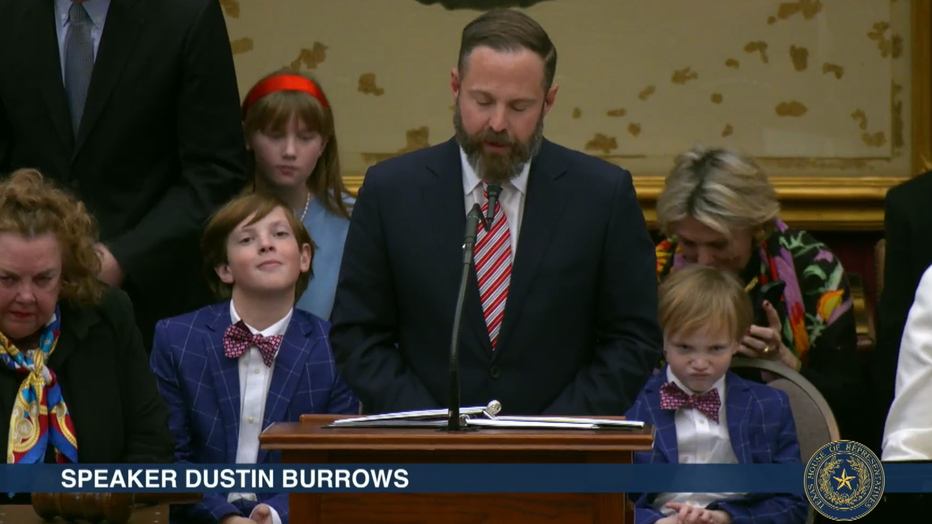
3:04 p.m. – Burrows being sworn in as House Speaker
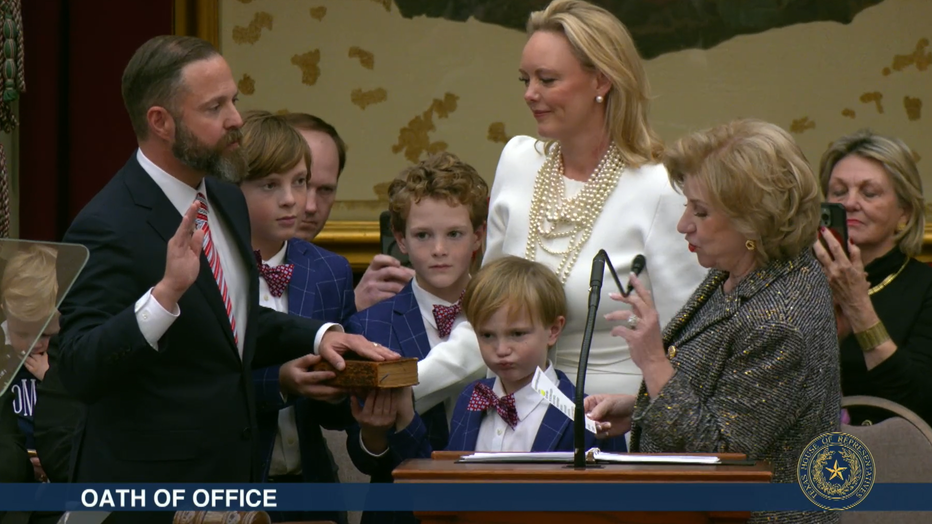
2:49 p.m. – More on new House Speaker Dustin Burrows:
The Lubbock representative is currently the chair of the House Calendars Committee and led the Uvalde shooting investigation.
Burrows authored House Bill 3 in 2023 designed to beef up school safety, including hiring at least one armed security officer at every campus and installing silent panic alarms in every classroom.
2:45 p.m. – Second Vote Results: Burrows – 85, Cook – 55, Not voting – 9
2:42 p.m. – Second vote is happening now.
2:36 p.m. – First vote: Burrows – 71, Ramos – 23, Cook – 56. We’re heading for a runoff between Burrows and Cook.
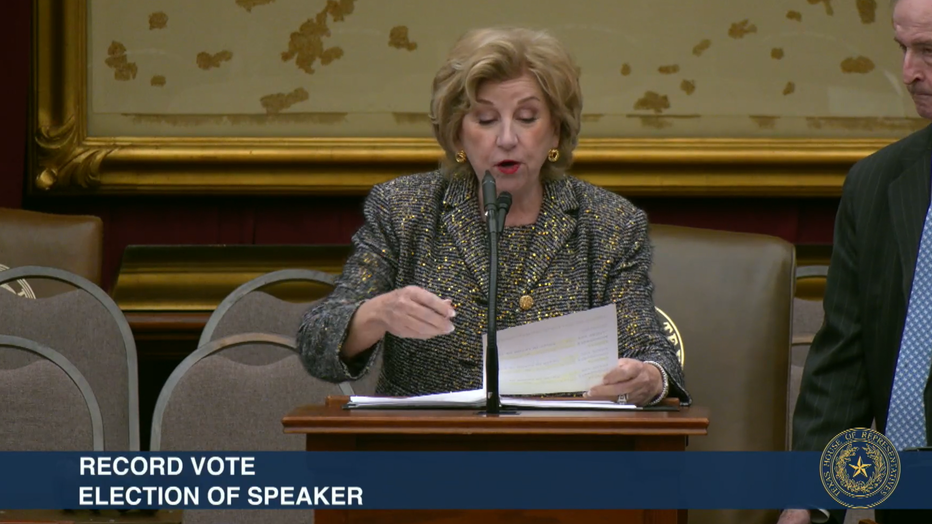
2:32 p.m. – Voting is finished in the first speaker vote. Sec. Nelson says it may take a few minutes to calculate the votes.

2:30 p.m. – “Members who do not cast a vote but were here for the initial roll call will be marked present, not voting in the journal.” – Nelson.
2:25 p.m. – It’s time for the first vote for House Speaker. Remember, a candidate must get 76 or more votes to be elected speaker.
2:20 p.m. – Rep. Lacey Hull (R-Houston) seconds the nomination for Rep. Burrows. “He is a leader that has always done the work.”
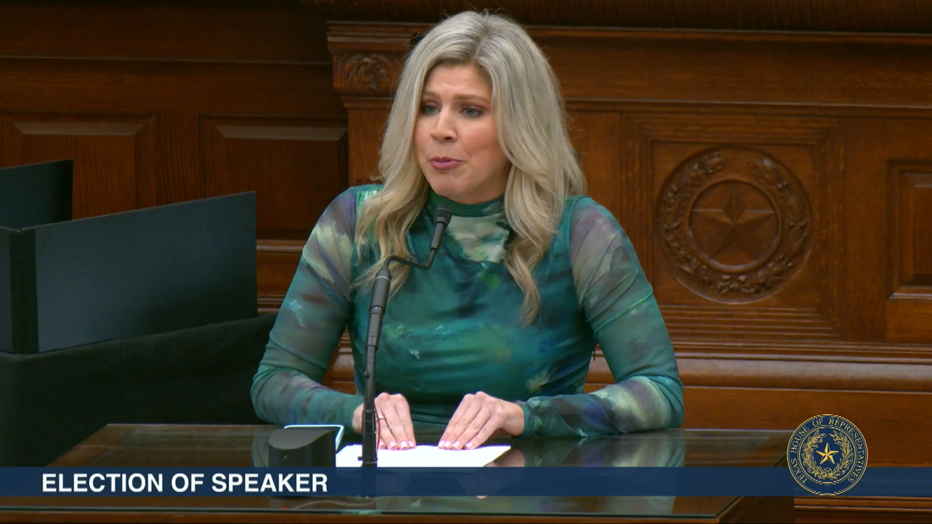
2:16 p.m. – Rep. Richard Raymond (D-Laredo) seconds the nomination for Cook. Raymond says he originally supported Burrows for speaker. “Mr. Cook is a consensus builder.”
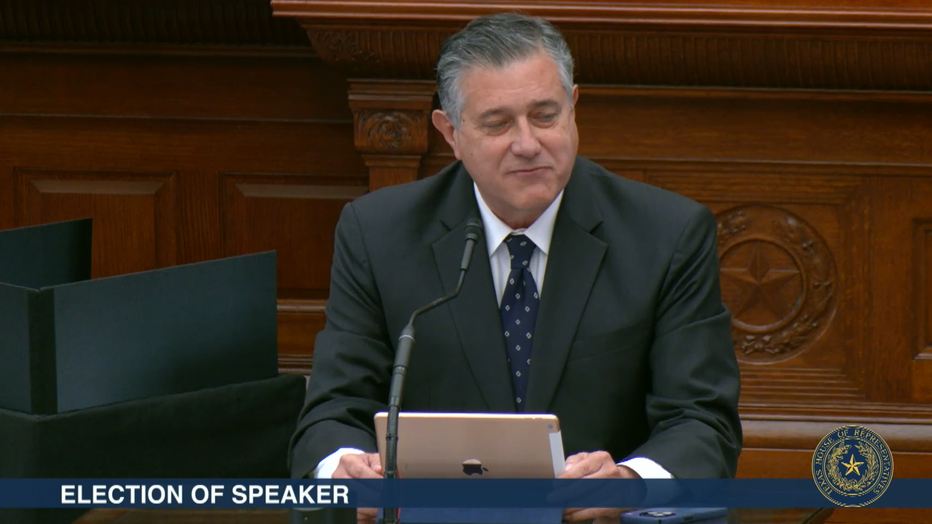
2:12 p.m. – Rep. Ramos speaks to her nomination as House Speaker. “Our Texas is within our grasp.”
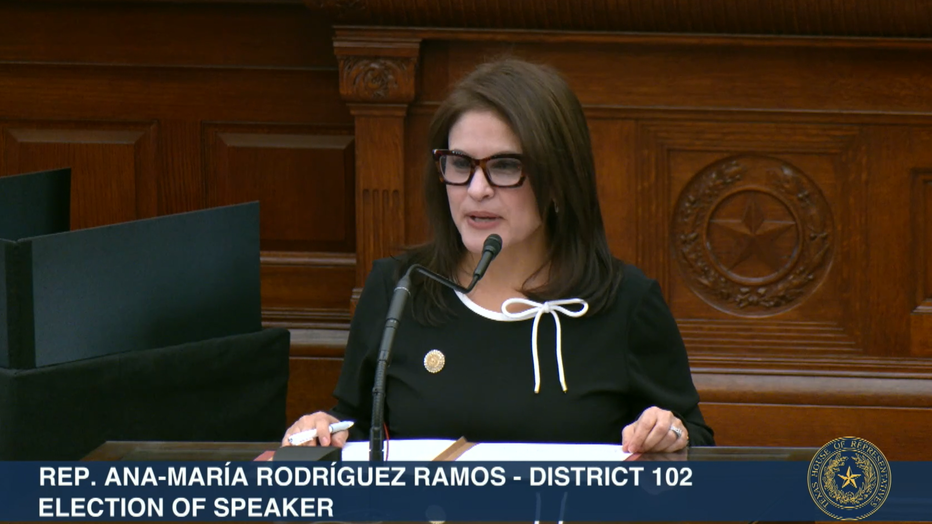
2:07 p.m. – Rep. Toni Rose (D- Dallas) seconds the nomination of Rep. Burrows.

2:03 p.m. – Rep. James Frank (R-Wichita Falls) seconds the nomination of Rep. Cook.

1:59 p.m. – Rep. Jolanda Jones (D-Houston) is the next speak in favor of Rep. Ramos.
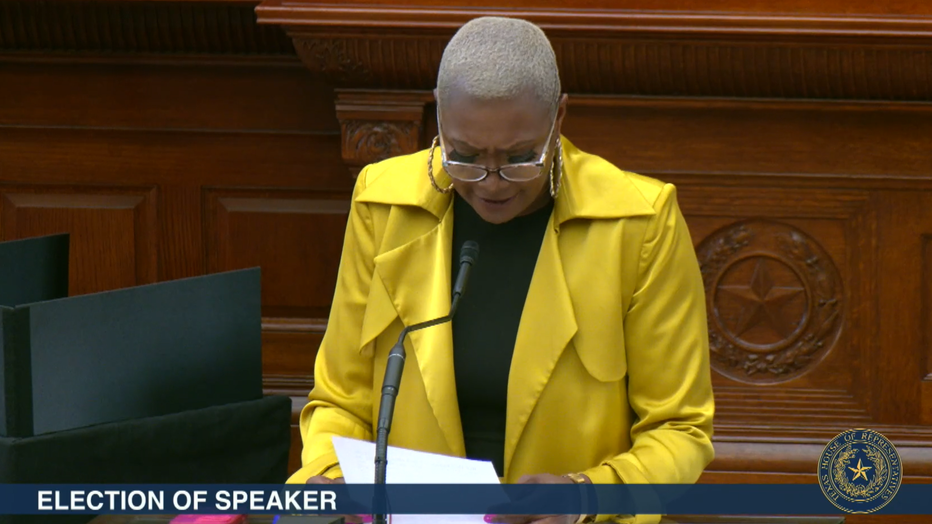
1:54 p.m. – Rep. Mihaela Plesa (D-Dallas) seconds the nomination of Rep. Burrows.
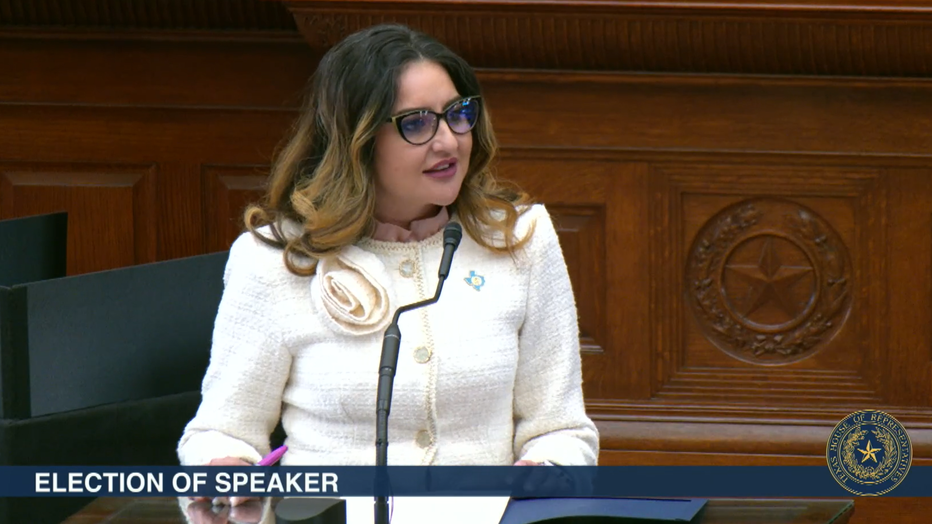
1:50 p.m. – Rep. Ellen Troxclair (R-Lakeway) delivers a seconding speech for Rep. Cook.

1:46 p.m. – We have three candidates for speaker. Seconds begin with Rep. John Bryant to second the nomination of Rep. Ana-Maria Rodriguez Ramos.
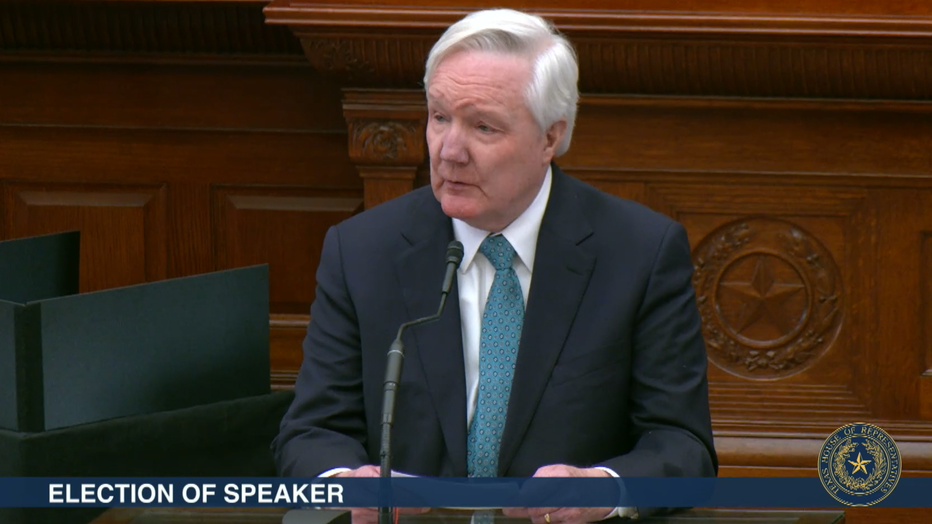
1:41 p.m. – Rep. Charlie Geren (R-Fort Worth) nominates Rep. Dustin Burrows (R-Lubbock) for House speaker.
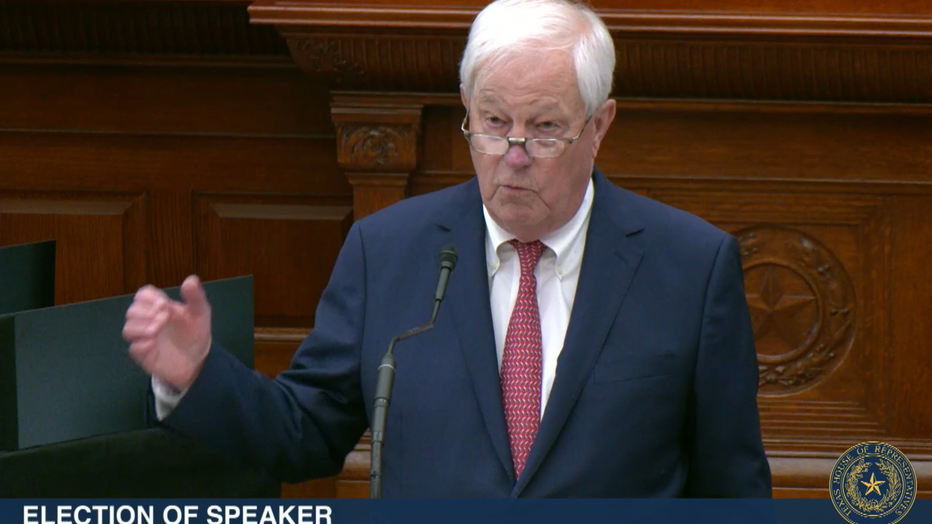
1:35 p.m. – Rep. Trent Ashby (R-Lufkin) is nominating Rep. David Cook (R-Mansfield).
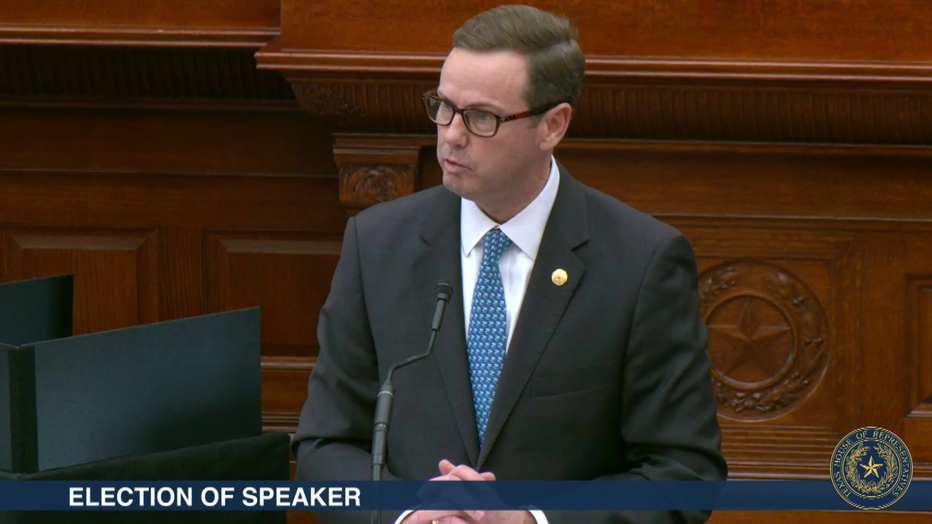
1:30 p.m.- We have our first nominating speech. Rep. Christina Morales (D-Houston) is nominating Ana-Maria Rodriguez Ramos (D-Richardson).
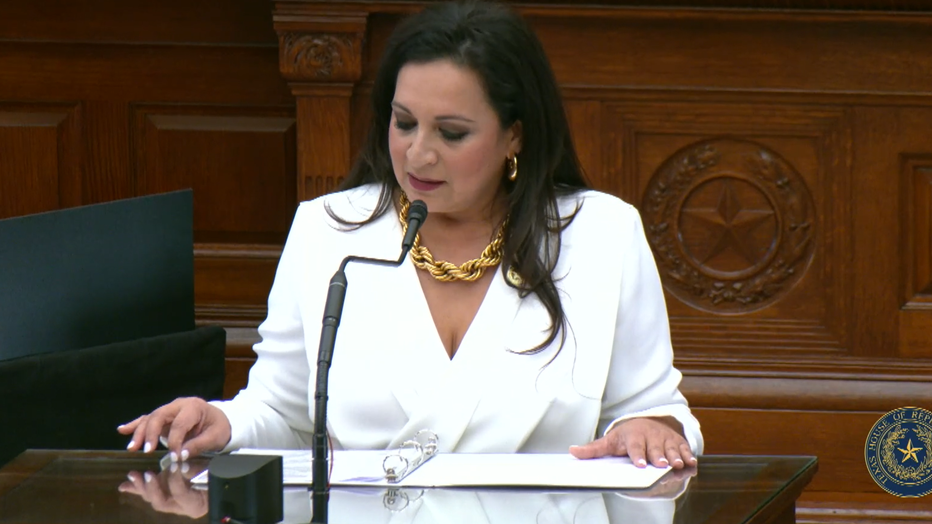
1:15 p.m. –
1:11 p.m. –
1:10 p.m. – H.R. 1 passes 145-5. It’s time for speaker nominations.
1:06 p.m. – To be elected speaker, a candidate must receive 76 votes, a majority of total members of the House. Previously, a speaker could be elected by a majority of votes cast.
12:59 p.m. – H.R. 1, which details the speaker vote, is being read.
12:56 p.m. – Rep. Angie Chen Button motions to use the rules from the 88th session ahead of the speaker vote. It is typical for the previous rules to be adopted before a speaker is selected. The rules of procedure for this session will be decided after a speaker is elected.
12:55 p.m. – We are back.
12:33 p.m. – Nelson places the house in a 10-minute recess so members can take photos with their guests ahead of the speaker vote. No guests will be allowed on the house floor for the vote(s).
12:32 p.m. – “Next we are going to start work on organization of the house. Which could take some time.” – Nelson
12:31 p.m. – The Oath of Office is being given.
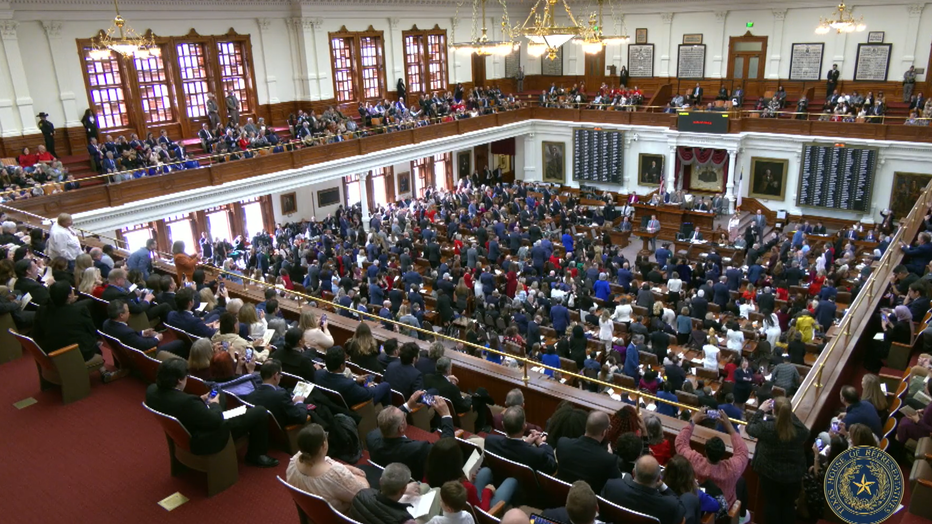
12:29 p.m. – Roll is called.
12:19 p.m. – It’s time for the roll call.
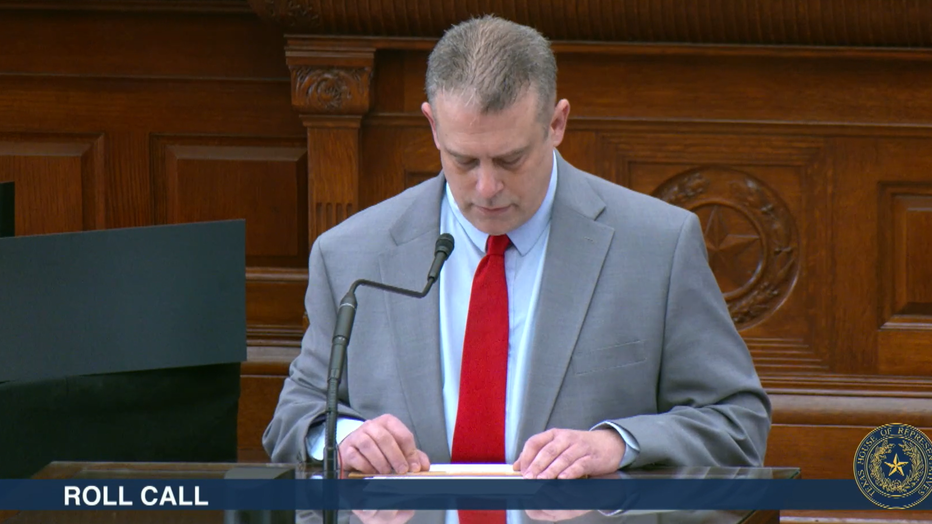
12:17 p.m. – “Today marks the beginning of 140 days of work on behalf of the people of Texas.” – Nelson
12:09 p.m. –
12:04 p.m. – Secretary of State Jane Nelson calls the House to order.
Noon –
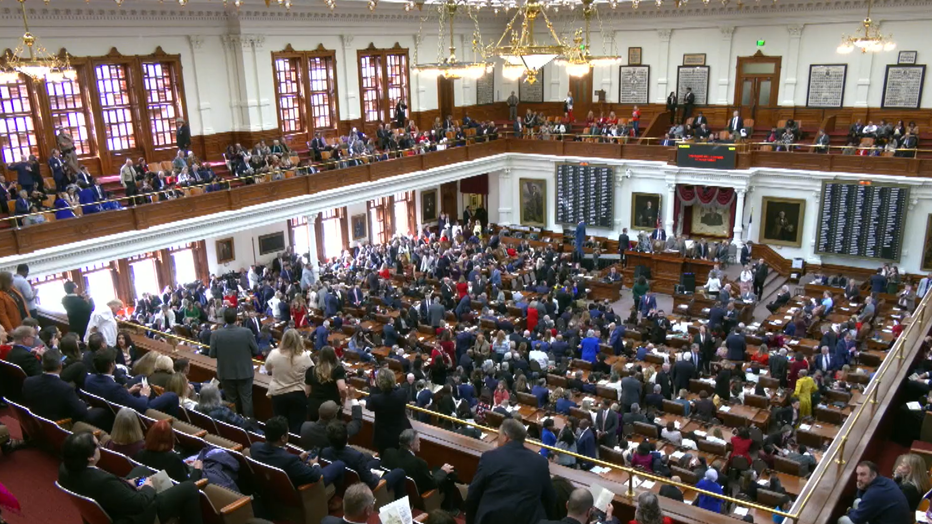
What we know:
The House will be called to order around noon on Tuesday.
The next step in the process comes from the Secretary of State.
The secretary will generally address the House before appointing parliamentarians and other officers.
Then, the roll is called for all members of the House and they are sworn in.
After the members are sworn in, the House then begins the process of choosing a speaker.
In years past, the vote for a speaker was usually more of a formality. This year, however, the race could be more contentious as two Republicans have emerged as the top candidates with both believing they’ll be the one to lead the House.
The Race for House Speaker
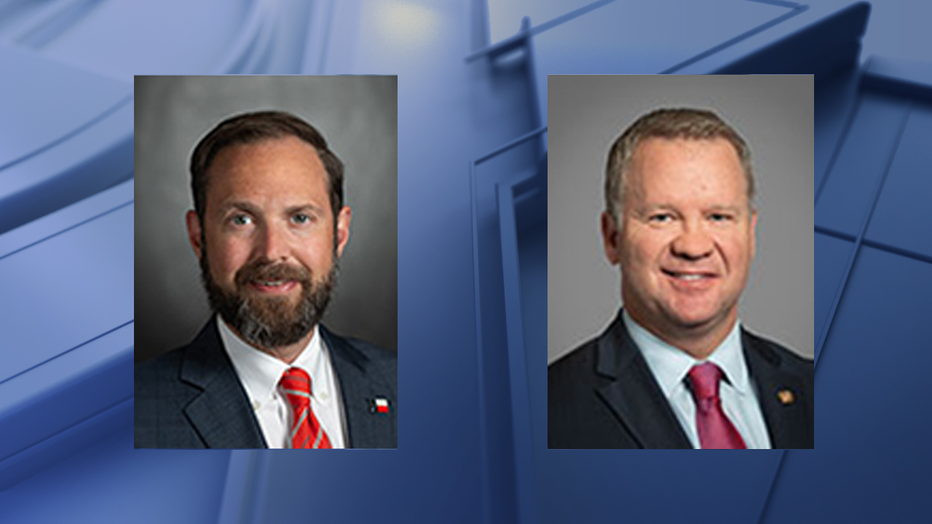
The backstory:
For the past two legislative sessions, Rep. Dade Phelan (R-Beaumont) led the House.
However, Phelan was set to face a challenge from the more conservative side of the party from Rep. David Cook (R-Mansfield).
Phelan announced in December that he would not seek a third term as House Speaker and instead put his support behind Lubbock Republican Dustin Burrows.
In a December meeting of the House Republican Caucus, Burrows emerged by declaring victory, citing the support of some in his party and most of the Democrats in the House.
It was Cook, however, that came out of the meeting with the nomination from his party.
The votes that took place at that meeting led to an increase of infighting between party members and saw several Republicans walk out of a third vote in an attempt to break quorum.
Burrows left the meeting with Republicans and released a list of 76 Republicans and Democrats who he said would support his efforts to become speaker. Since then, several representatives have asked to be removed from that list, and it is unclear if Burrows still has the votes required to become speaker.
Cook, on the other hand, walked out of that December meeting with the party’s support and a list of 56 Republicans supporting him.
Cook would need to sway more Republicans to his side, however, as he and others in the party have taken a hard-line stance against allowing the Democrats any say in the speaker race and in who chairs House committees.
What does the House Speaker do?
The speaker presides over the Texas House of Representatives much like the speaker in the U.S. House of Representatives.
The speaker is tasked with maintaining order on the House floor during debates, recognizing members who want to speak and ruling on procedural matters.
Under the Texas Constitution, the speaker signs all bills and joint resolutions passed by the legislature.
Speakers still maintain their status as a member of the Texas House and are allowed to vote on questions presented in the House.
The speaker still represents the people in his or her district.
Once a speaker has been decided, they are responsible for appointing members to committees and designating the chair and vice chair of those committees.
The speaker directs all legislation to the proper committees and can appoint conference committees, establish select committees and direct committees to conduct interim studies when the House is not in session.
Featured
How do you become speaker?
Becoming speaker requires a majority vote from House members.
Currently, the Texas House consists of 150 members. In January, the House will be made up of 88 Republicans and 62 Democrats.
The new speaker will need at least 76 votes.
At the beginning of each legislative session, the current Secretary of State calls the House to order and gives the oath of office to its members.
Representatives then nominate speaker candidates and vote. Once the vote is finished, the new speaker takes another oath, and addresses the House floor.
Letters are then sent to the Senate and the Governor that state the House is ready to begin.
The Source: Information in this article comes from the Texas House of Representatives and previous FOX reporting.